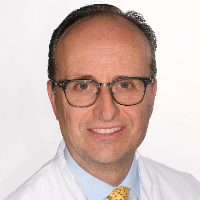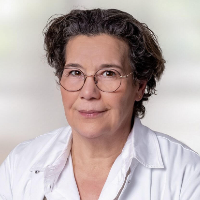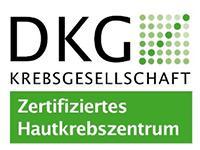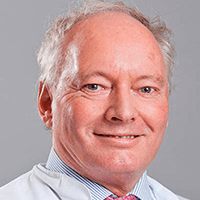Skin Cancer — Cryosurgery: treatment in the Best Hospitals in the World
Treatment prices are regulated by national law of the corresponding countries, but can also include additional hospital coefficients. In order to receive the individual cost calculation, please send us the request and medical records.

Department of Adult and Pediatric Dermatology, Allergology and Phlebology
The Department of Adult and Pediatric Dermatology, Allergology and Phlebology offers all the options of modern medicine for diagnosing and treating skin diseases, allergies, and venereal pathologies. The focus of the department's dermatologists is on patients with various types of skin cancer, psoriasis, eczema, neurodermatitis, acne, venous diseases, and chronic non-healing leg ulcers. The medical facility also admits young patients, including those with rare and genetic skin diseases. The department has an excellent technical base, thanks to which modern laser treatment, light therapy, phototherapy, and advanced sparing surgical interventions are successfully performed here. Top-class medical care is provided by a highly professional team of 60 specialized doctors and 130 nurses, as well as medical and technical workers. About 90,000 patients undergo outpatient treatment, and more than 5,800 patients receive medical care on an inpatient basis annually. The hospital has 160 beds to accommodate patients. The department is thus one of the largest medical facilities of this kind in Germany.






Department of Dermatology and Allergology
The Department of Dermatology and Allergology provides all diagnostic tests and therapeutic measures for the treatment of skin diseases and allergic reactions. The priority area of the department's work is the treatment of malignant skin neoplasms (certification as a Skin Cancer Center of the German Cancer Society). Each patient receives an individual treatment regimen for skin pathology or allergies, which includes the most effective and sparing therapeutic methods.




Department of Dermatology, Venereology and Allergology
The Department of Dermatology, Venereology and Allergology offers the diagnostics and treatment of all dermatological diseases. The department specializes in the very latest methods of surgical dermatology, diagnostics and treatment of skin cancer, venous diseases, as well as all diagnostic and therapeutic methods of modern dermatology, including laser dermatological therapy, phototherapy, photodynamic therapy, etc. The treatment of patients with skin cancer is carried out in close cooperation with colleagues from the University Cancer Center Frankfurt.






Skin cancer is a malignant tumor that ranks among the most common in the world. 75% of cases of non-melanoma neoplasms occur in basal cell carcinoma, most of the remaining cases are squamous cell carcinoma. According to the WHO, skin cancer is one of the five most common malignant tumors in the world. Nonetheless, people rarely die from this disease, since the existing treatments can remove the neoplasm and prevent the development of relapse.
What is cryodestruction?
Cryodestruction (cryosurgery) involves the destruction of cancer cells with liquid nitrogen. The tissues freeze when exposed to temperatures minus 196 degrees. This results in the formation of crystals that mechanically damage cell membranes. The freezing worsens blood circulation in the affected area, which leads to tissue necrosis.
An important condition for successful treatment of skin cancer and melanoma is complete and irreversible necrosis. It eliminates the possibility of restoration of cell activity after thawing.
Advantages of cryodestruction:
- Sparing effect
- Good aesthetic result
- Possibility to use on an outpatient basis
- Possibility to use in elderly and debilitated patients
- Bloodless intervention
- Minimal pain, most patients do not even need anesthesia
Disadvantages of removing skin cancer using cryotherapy:
- Inflammatory reactions after the procedure
- Risk of infectious complications, to prevent which the patient has to take antibiotics or use local antibacterial agents
- Exposure depth reaches a maximum of 1 cm, so the method is not suitable for the removal of large neoplasms
Cryotherapy gives relatively many relapses. Their frequency reaches 4-9% during 5 years of monitoring with primary tumors, 13-22% with recurrent skin cancer. The method is not suitable for removing tumors on the nose, ears, it can rarely be used to remove tumors on the eyelids, because the effect is not too precise, and this leads to gross aesthetic defects and impaired organ function.
How is cryodestruction performed?
There are two main ways of tissue freezing:
- Applique
- Dispersion
The indication for dispersing or irrigation of liquid nitrogen over the tumor is a large area of formation with a minimal depth of invasion. This is how superficial neoplasms are treated.
Application is performed when the volume of the malignant tumor is up to 2 cm, the invasion depth dos not exceed 0.7 cm. To remove such neoplasms, the tip of the cryogenic instrument must be fixed directly to the tumor. In total, 2 or 3 cycles of freezing and thawing are required to completely destroy skin cancer. The application time is from 0.5 to 3 minutes. It depends on the location of the tumor and the depth of invasion. The thawing of tissues lasts an average of 3 minutes, after which they are again exposed to liquid nitrogen.
Skin cancer is affected in the center of the tumor. The necrosis zone is gradually spreading to the periphery. The exposure is stopped when the frozen area extends 5 mm or more from the edge of the tumor towards the visually unchanged skin integument.
Cryodestruction results in a skin defect. It is treated with an antiseptic. A scar is formed on average after 1 month.
Puncture cryodestruction
Puncture cryodestruction is a new method of cryosurgery used in foreign clinics. It can be used to treat large or recurrent tumors.
Puncture cryodestruction involves the introduction of thin probes under ultrasound guidance. The first stage is tumor imaging. It determines the zones of its spread. Skin cancer invasion usually goes along the blood vessels and between the muscles. A doctor determines a tumor map, plans healthy tissue capture by 5 mm in each direction. In the area of skin cancer spread, the doctor inserts thin tubes, through which liquid nitrogen is supplied.
Such operations are performed under general anesthesia. They are technically more complex and can be used in specialized centers. The procedure is performed under continuous ultrasound guidance. Commonly used puncture cryodestruction apparatuses contain probes with a diameter of 1.5 to 5 mm and a needle length of up to 20 cm.
After the cryosurgery procedure, edema in the area of exposure remains for 2-3 days. In those areas where cryotherapy was performed superficially (using the application method), lymphorrhea (lymph secretion) is noted. Within 1 week, a change of dressings and treatment of the wound with antiseptics is required. The doctors often prescribe antibacterial agents inside.
A dry necrotic scab forms 1 week later. After this, further medical supervision is not required. After 2-4 weeks, the scab disappears and the wound heals. The puncture sites do not require any treatment. They heal quickly and do not leave large scars.
Puncture cryodestruction for recurrent forms of skin cancer has an efficiency of up to 93%. Nevertheless, the possibilities of the method are limited. The procedure cannot be used when bone tissue, large blood vessels, joints, airways, genitals and topographically complex areas of the body are involved in the tumor process.
Treatment abroad with the Booking Health company
To undergo treatment abroad, in the best hospitals in the world, please contact Booking Health. We offer the following benefits:
- Selection of the best clinic that specializes in cryosurgery for skin cancer and achieves the best results in this field of oncology.
- Reduced cost of cryotherapy up to 50% due to the lack of overpricing and additional coefficients for foreign patients.
- Booking an appointment for the diagnostics and treatment on the most suitable dates for you.
- Preparation of a cryosurgery program based on the studies performed.
- Establishment of communication directly with the attending physician.
- Monitoring all stages of the cryotherapy program.
- Control of invoices, return of unspent funds.
- Buying and forwarding medicines.
- Organization of additional diagnostic or therapeutic procedures.
- Communication with the clinic after cryotherapy completion.
The Booking Health company will provide you with top-class services. We will help you with paperwork, book a hotel and airline tickets, meet you at the airport and take you to the hospital by car.

